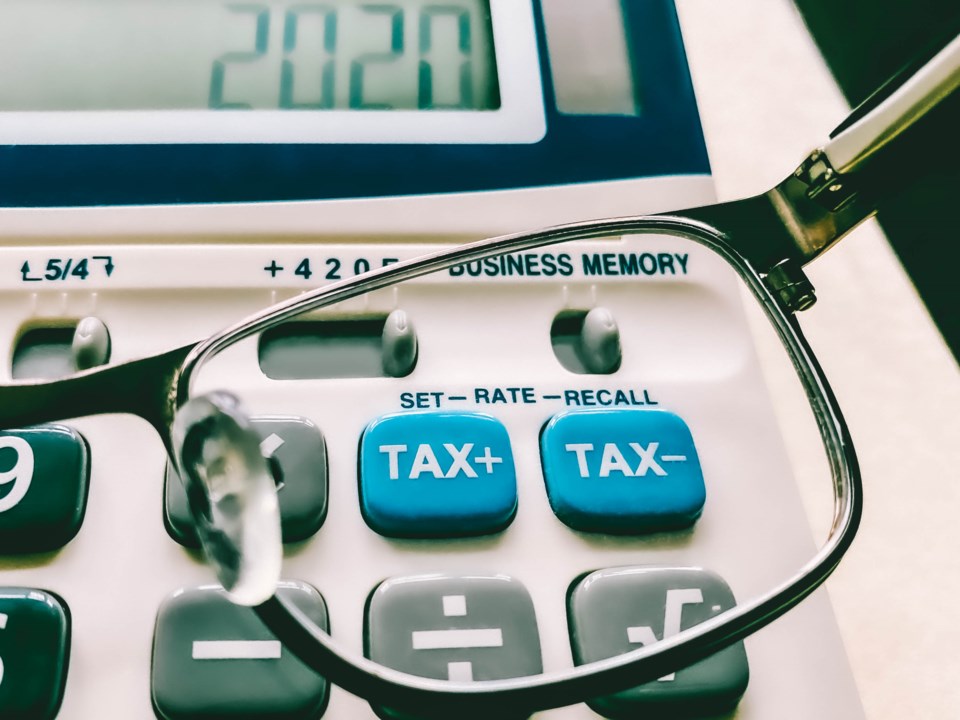The total amount of outstanding tax arrears declined in the third quarter of this year compared to 2020, although the amount is still higher than other Q3s stretching back to 2016.
As of Sept. 30, delinquent taxpayers owed $1,786,478 in total arrears, a number composed of $1,474,617 in property tax liens and $311,861 with payment plans.
In comparison, in Q3 2020, total arrears were $1,815,840, with tax liens at $1,119,924 and payments plans at $695,916. Therefore, total tax arrears have declined year-over-year by $29,362.
Meanwhile, Q3 2019 showed total arrears of $1,315,369, including $1,171,200 in tax liens and $144,169 on payment plans.
Also, total arrears by the end of Q3 2018 were $1,291,477, by the end of Q3 2017 were $854,822, and were $753,878 by the end of Q3 2016.
The numbers were part of an overall third-quarter financial report that city administration presented during the recent regular city council meeting.
“In terms of municipal taxation, the good news for 2021 is our taxation overall is up approximately $609,000. That’s primarily due to (property) assessment appeals,” finance director Brian Acker. “We’re finally working those appeals through the Saskatchewan Municipal Board; we’re winning those appeals and we’re seeing additional revenue.”
The total tax arrears for Q3 were down slightly, noted Coun. Crystal Froese. However, she wondered if more people had repaid what they owed, considering the outstanding arrears on payment plans declined from Q3 2020 to Q3 2021.
“We have had a fairly good success in terms of the payment plans and people meeting those payment plans, so that has had an impact,” said Acker.
“Unfortunately, going forward, you’ll notice in the report that our current payment plans are lower than previous years. … those were people who caught up and paid, but we now have a number of other citizens (who) we do need to work with to get (caught up with) payment plans.”
During a media scrum after the meeting, Mayor Clive Tolley said that he was not worried about outstanding tax arrears since those always happen and people usually must repay over time. Most people eventually repay what they owe anyway.
“It’s a sign of the times. It’s been difficult the last two for years for a lot of people, but I think it’s encouraging that it’s not worse than it is,” he said, adding city administration would likely accept any type of repayment plan from taxpayers to clean up back taxes.
In 2020, city council approved several programs to help residents with their taxes in response to the pandemic, although those initiatives weren’t discussed for this year or next, said city manager Jim Puffalt.
There are still two programs to help people make regular payments with their bills, including the water instalment payment plan service (WIPPS) program and the tax instalment payment plan service (TIPPS) program, he continued. However, residents must be caught up on their taxes to participate.
“Certainly … seeing a decrease in the overall property taxes is a good sign for us. We haven’t seen one for a while, so it’s good to see,” Puffalt added. “But we’ll play it by ear, and if people have issues, come talk to us and we can give them a hand.”
Borrowing
As of Sept. 30, the City of Moose Jaw owed $51,471,380 in outstanding debt on four projects financed with borrowing.
The municipality still owes $13,110,000 on the multiplex long-term loan, $2,485,000 on the sanitary sewer long-term loan, $25,356,000 on the waterworks capital long-term loan and $10,520,380 on the Buffalo Pound Water Treatment Corporation long-term loan.
The next regular council meeting is Monday, Dec. 6.




